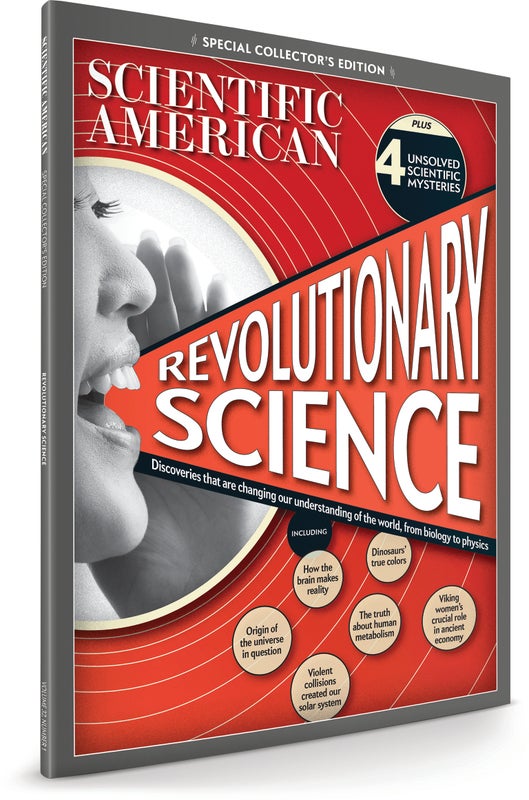
In cosmology, data from NASA’s transformative new observatory—the James Webb Space Telescope—threaten to upend astrophysicists’ narrative about how the universe formed, and physicists have devised some astounding ideas about entangled black holes that will help explain an almost century-old paradox. Current views suggest that even our solar system did not establish itself slowly, as was long thought, but was born of a violent blur of impacts and destruction. All of which is confounded by the possibility that what we “see” out in space may not actually be there, in the quantum sense.
Major advances in our understanding of our own minds and bodies are just as striking. Trauma from events experienced during pregnancy can be passed down to children, evidenced in genetic changes. Evolutionary anthropologist Herman Pontzer and his colleagues have painstakingly gathered surprising information about metabolism and how our bodies burn calories. And the mRNA vaccine technologies developed during the COVID pandemic are poised to revolutionize treatment for a slew of diseases, from herpes simplex virus 2 to norovirus and rabies, to name a few.
One of my graduate school advisers used to say that what humans Know (capital “K”) is infinitesimal compared with what is knowable in the universe. In that spirit, we also present a sample of some of the most fascinating unanswered questions, from the enduring mystery of how human consciousness arises to a growing debate over the very nature of the cosmos.
Some of the most astonishing findings collected here are those where conventional scientific practice went out the window. As lichenologist Toby Spribille tells reporter Erica Gies in “The Meaning of Lichen,” “You have this culture of prepared minds that makes it extremely difficult to think outside the box. It creates the box.” Indeed, the beauty of scientific inquiry is that when we quickly leapfrog the pace of discovery—or take our explorations in totally novel directions—we uncover an entirely new way of thinking. Here’s to breaking the box.
This article was originally published with the title “Science Out of the Box” in SA Special Editions 32, 1s, 1 (March 2023)
doi:10.1038/scientificamericanrevoluationary0323-1
ABOUT THE AUTHOR(S)

Andrea Gawrylewski is chief newsletter editor at Scientific American. Follow her on Twitter @AGawrylewski Credit: Nick Higgins

